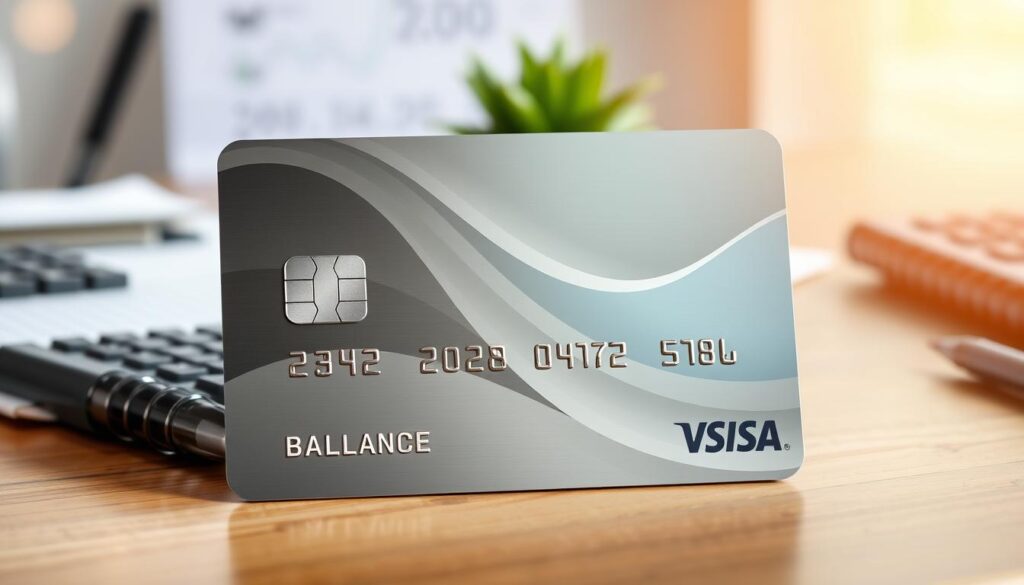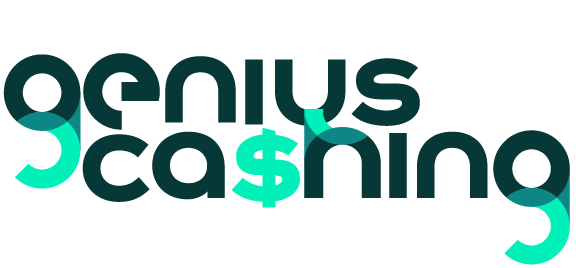Debt Consolidation Strategies to Overcome Personal Financial Deficits
Anúncios
In today’s world, many people struggle with too much debt. This can come from credit cards, medical bills, or unexpected events.
But, there’s a way out. Debt consolidation strategies can help you take back control and find financial stability.
What is Debt Consolidation?

Debt consolidation is a way to manage your debts better. It combines several debts into one, making payments easier. This can save you money and help you become debt-free faster.
Debt consolidation means getting a new loan to pay off old debts. This could be credit cards, personal loans, or other debts. It simplifies payments and might lower your interest rate, making it easier to manage your money.
Anúncios
Benefits of Debt Consolidation
Debt consolidation has many benefits for those with debt:
- Simplified Payments: You only have to make one payment a month. This makes it easier to keep track of your finances.
- Lower Interest Rates: Consolidation loans often have lower interest rates than credit cards. This can save you money over time.
- Faster Debt Repayment: With a single loan, you can pay off your debts faster. This is because you have a fixed repayment plan.
- Improved Credit Scores: Making consistent, on-time payments on a consolidated loan can improve your credit score. This makes it easier to get credit in the future.
Overall, debt consolidation can be a valuable tool for managing your debt. It helps you work towards financial stability. By understanding its benefits, you can make better decisions about your debt.
Debt Consolidation Strategies
There are many ways to tackle debt and take back control of your money. A debt management plan is one popular choice. It combines several debts into one monthly payment, often with better interest rates and terms.
A debt consolidation loan is another option. It merges multiple debts into one loan, usually with a lower interest rate. This can make your payments easier and save you money in the long run.
- Debt consolidation loans offer a single, possibly lower-interest payment. But, they might have extra fees or need collateral.
- Balance transfers can move high-interest debt to a card with a lower rate. Just watch out for transfer fees and the end of the promotional rate.
- Debt management programs help by negotiating with creditors for better rates and payments. They can simplify your monthly bills. However, they might have a fee and could hurt your credit score at first.
When looking at your debt consolidation options, weigh the good and bad of each. This will help you pick the best debt relief strategies for your situation. Getting advice from a financial advisor or credit counselor can also help you understand debt management plans better and find the right solution.
“The key to effective debt consolidation is finding the right balance between reducing your overall interest costs and avoiding additional fees or long-term financial consequences.”
Evaluating Your Debts
Starting a debt consolidation journey means understanding your current debts well. By categorizing your debts and prioritizing them based on interest rates and repayment terms, you can make a detailed debt assessment. This helps in creating a solid financial analysis plan.
Categorizing Your Debts
The first step is to sort your debts by type. This includes credit card balances, student loans, and personal loans. Grouping your debts helps you see your debt landscape clearly. It also shows where you need to focus.
Prioritizing Debts
After sorting your debts, it’s time to prioritize them. Start with debts that have high interest rates. These can quickly grow and take a big chunk of your budget. By prioritizing your debts wisely, you can make your debt consolidation efforts more effective.
By evaluating your debts, categorizing them, and prioritizing them based on important financial factors, you set the stage for a successful debt consolidation plan. This detailed debt assessment and financial analysis will help you make smart choices. It will also help you take control of your finances again.
“Debt consolidation is not a quick fix, but a strategic tool to help manage and reduce your outstanding financial obligations.”
Creating a Debt Repayment Plan
Creating a detailed debt repayment plan is key to financial freedom and managing debts well. A smart debt management strategy helps you take back control of your money. It’s a step towards becoming debt-free.
To start, you need a solid personal finance budgeting plan. This means tracking your income, expenses, and setting aside money for debt. It’s important to focus on debts with high interest first and make a plan to pay them off.
- Categorize your debts: Sort your debts into types like credit cards, personal loans, and student loans. This helps you see what you owe.
- Prioritize debt payments: Pay off debts with high interest first. They cost more over time and can get out of hand quickly.
- Allocate funds strategically: Decide how much you can pay towards debt each month. Then, split it up based on your debts.
- Set a timeline: Plan when you want to be debt-free. Check and adjust your plan as needed to stay on track.
With a solid debt repayment plan, you can make big strides in paying off your debts. This improves your credit score and brings financial stability and peace of mind.
“A well-crafted debt repayment plan can transform your financial future, one step at a time.”
| Debt Type | Interest Rate | Minimum Payment | Desired Payment |
|---|---|---|---|
| Credit Card A | 19.99% | $50 | $150 |
| Personal Loan B | 12.75% | $100 | $200 |
| Student Loan C | 5.25% | $75 | $150 |
Debt Consolidation Loans
Dealing with many debts can be tough. A debt consolidation loan might help. It combines your debts into one easy payment. Let’s look at the different types and their good and bad sides.
Types of Debt Consolidation Loans
There are a few main types of debt consolidation loans:
- Personal Loans – These loans let you merge credit card and personal debts into one payment. They often have lower interest rates.
- Home Equity Loans – If you own a home, you can use its equity for a low-interest loan. This is for debt consolidation.
- Balance Transfer Credit Cards – Some cards offer to move high-interest debts to a new card. This can save you money with a 0% or low-interest rate for a while.
Pros and Cons of Debt Consolidation Loans
Debt consolidation loans have some benefits. They can make paying off debts easier and faster. But, it’s important to know the downsides too:
| Pros | Cons |
|---|---|
|
|
It’s key to think about your finances before getting a debt consolidation loan. Knowing the details can help you choose the right option for your future.
Balance Transfers
Consider using a balance transfer credit card to consolidate debt. This tool moves high-interest credit card debt to a new card with no interest for 12 to 24 months. It saves you money on interest and helps you pay off debt faster.
How Balance Transfers Work
Applying for a balance transfer is easy. You get a new card with no interest on transfers for a set time. Then, you move your old card’s debt to the new one. This makes one monthly payment with lower interest.
The benefits of a balance transfer card are clear:
- Less interest means you pay off the principal quicker
- One monthly payment makes managing debt easier
- It can also improve your credit score by lowering your debt-to-credit ratio
But, know the deal’s terms, like the no-interest period and any fees. Also, pay off the balance before the promotional rate ends. The regular APR can be very high after that.
Looking into balance transfer options can help you become debt-free. It’s a big step towards better financial health.
Debt Management Programs
Debt management programs are a special way to handle multiple debts. They are usually found through credit counseling agencies. These programs help you manage and pay off your debts in a structured way.
To join a debt management program, you work with a credit counselor. They talk to your creditors to lower interest rates and fees. They also combine your payments into one easy monthly payment. This makes it simpler to manage your debts and work towards being debt-free.
One big plus of debt management programs is they can help improve your credit score. By paying on time through the program, you show you’re serious about managing your money well. This can help rebuild your credit over time.
But, there are downsides to consider too. Joining a program might make it harder to get new credit later. Also, there could be fees that add to your debt.
| Advantages of Debt Management Programs | Disadvantages of Debt Management Programs |
|---|---|
|
|
Choosing a debt management program should be a thoughtful decision. It’s important to look at your financial situation and goals carefully. Research and compare different options to find the best fit for your debt needs.
Debt Consolidation Strategies
Getting out of debt can seem overwhelming, but the right strategies can help. By creating a plan tailored to you, tracking your progress, and adjusting as needed, you can reduce your debt and improve your financial management.
Start by prioritizing your debts. Look at interest rates, balances, and how they affect your credit score. This way, you focus on the debts that save you the most money and improve your financial health.
- Use a debt consolidation loan or balance transfer card to lower your interest costs.
- Talk to creditors to reduce interest rates or restructure payment plans. This makes your debt easier to handle.
- Look into debt management programs. They offer personalized debt counseling and payment plans to help you manage your finances.
It’s important to monitor your progress and adjust your plan when needed. This might mean refinancing, changing payment schedules, or trying new debt reduction methods. This keeps you on track to meet your financial goals.

By using these debt consolidation strategies, you can make real progress towards improving your financial management and reducing your debt in the long run. Remember, the journey to financial freedom is not always easy. But with determination and a solid plan, you can overcome your financial challenges and look forward to a brighter future.
Avoiding Debt Consolidation Pitfalls
Debt consolidation can be tricky. It’s key to avoid common mistakes that could set you back. These include not understanding loan terms and not budgeting well. Such errors can lead to more financial problems.
Common Mistakes to Avoid
To make debt consolidation work, avoid these common mistakes:
- Overlooking the fine print: Always read the terms and conditions of any loan or offer. This includes interest rates, fees, and repayment plans.
- Neglecting to budget: Create a detailed budget. It should cover your debt payments and other expenses. This helps you stay on track.
- Continuing to accrue new debt: Avoid using credit cards or taking out more loans while consolidating your debts.
- Failing to monitor your credit: Check your credit report and score often. This ensures debt consolidation doesn’t harm your credit.
- Ignoring your debt management plan: Stick to your repayment schedule. Make payments on time to get the most from debt consolidation.
By being careful and making smart choices, you can successfully consolidate your debt. This will help you take back control of your finances.
“Debt consolidation can be a powerful tool, but it’s essential to approach it with caution and a clear understanding of the potential pitfalls.”
Conclusion
As we wrap up our look at debt consolidation strategies, the way to financial freedom is clearer. Now, readers can take charge of their money and start a journey to better finances.
The methods shared in this article can make managing debt easier. They help pave the way for a future without the weight of debt. By using smart budgeting, focusing on the right debts, and using consolidation tools, readers can achieve debt-free living and feel financial freedom.
Getting to financial stability takes hard work and a solid plan. By using the tips from this article and staying committed to good money habits, readers can reach a brighter, debt-free future. Start this journey and use effective debt consolidation strategies to secure your financial future.
